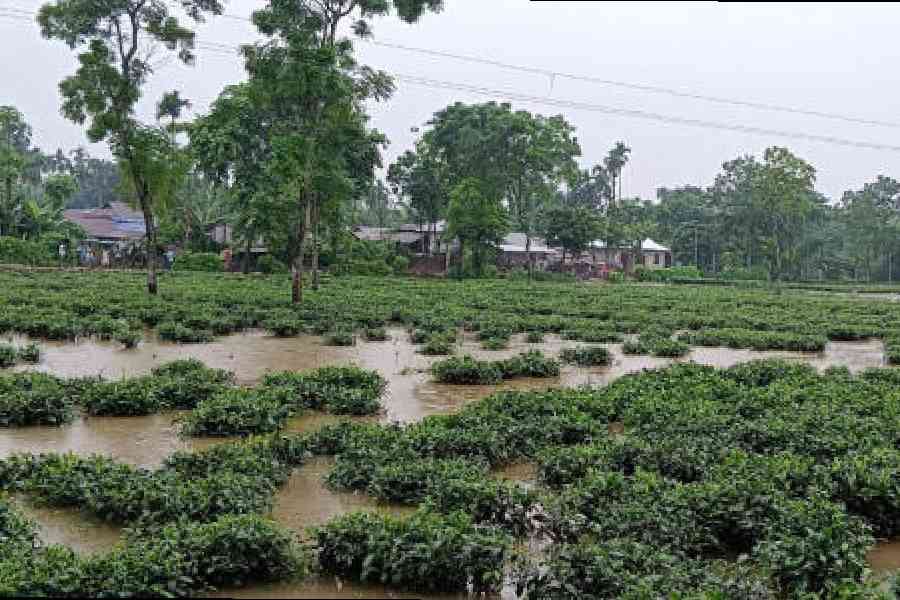Heavy rain continued to batter north Bengal and Sikkim on Sunday, triggering fresh landslides and swelling up rivers like the Teesta which breached banks and flooded adjoining areas.
Some rivers and streams also flooded certain areas of Cooch Behar and Alipurduar districts, including villages and tea plantations.
In north Sikkim, a stream swelled and swept away an under-construction road that connects Lachen, a popular tourist destination with Thangu, a remote village located close to the Indo-Sino border.
At Teesta Bazar, Teesta flooded the Darjeeling-Kalimpong road and a stretch that connects Ravi Jhora on NH 10, the arterial road that connects Kalimpong and Sikkim with Siliguri. Even today, a stretch of the highway remained closed as the Bengal PWD carried out repairs.
The downpour has also damaged NH110 which connects Darjeeling with Siliguri. The Darjeeling district administration has announced a complete halt in vehicular movement from Sukna to Kurseong along the highway as a stretch of it has subsided near Paglajhora, which is around 30 kilometres from here.
“The administration has also informed the authorities of Darjeeling Himalayan Railway about the stretch, mentioning that the site needs inspection and necessary intervention. It has been advised that unless such inspection is carried out and competent authorities of the railways make a decision, movement of toy trains between Sukna and Kurseong should remain suspended,” said a source.
In Cooch Behar, the Raidak river has flooded two villages in the Tufanganj 2 block and is also eroding chunks of land from these hamlets.
“Around 150 families have moved to safer places. The block administration, along with the state irrigation department, is trying to control erosion and flooding of adjoining areas,” said a source.
The river, sources said, has breached its embankment and has entered villages like Paschim Langalgram and Bekarkhata.
In a similar manner, the Raidak has flooded the Balarampur area of Tufanganj 1 block.
In the neighbouring Alipurduar district, rivers and streams which move through tea estates have flooded tea plantations in some gardens. The Kaljani river, which skirts Alipurduar, has inundated some local lying areas of the town.
In such a situation, officials of the state irrigation department are worried as they are facing a shortage of boulders which are used for temporary protection works to check erosion and to prevent flooding.
“As the rivers have swollen, it is not possible to collect boulders. So far, we have worked with boulders which were there in stock. But we doubt whether emergency protection works can be carried out if we don’t get fresh stock of boulders during the next few days,” said a senior official.
During monsoons, boulders are put in wire meshes and cages, which in turn are dumped on the river banks and embankments to minimize erosion and also to stop rivers from inundating banks.
Weather experts said the monsoon is active in the region and there is a forecast of more rainfall during the next couple of days.
“In the past 24 hours, it has rained in most parts of north Bengal and Sikkim. From tomorrow, there will be rainfall and thunderstorms in some of the areas,” said an expert.











